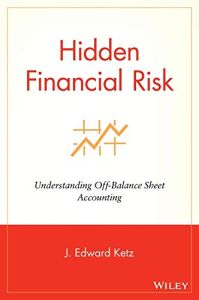Join getAbstract to access the summary!

Join getAbstract to access the summary!
J. Edward Ketz
Hidden Financial Risk
Understanding Off-Balance Sheet Accounting
Wiley, 2003
What's inside?
Recent corporate scandals have faulty accounting practices in common. How is your firm managing the bean counter risk?
Recommendation
J. Edward Ketz has written a very curious sort of accounting book. About half of it consists of technical information about accounting and its misuse, and the other half is an impassioned polemic about the need for reform. He includes some anomalous editorial quirks; for instance, midway through the book is an appendix consisting of the entire text of an SEC report. Most appendices appear at the end of books. The author is clearly a professor on a soapbox, an academic-preacher hybrid with a flair for the eloquent purple phrase. He effectively identifies some of the accounting principles that managers who are bent on deception abuse most often. Although this looks like a textbook, getAbstract.com finds that it could serve quite adequately as an investor’s introduction to accounting fraud. The author’s rhetorical flourishes take a lot of the dreariness out of the subject of accounting, and will keep most readers alert long enough to finish the book - or at least to read as far as the appendix.
Summary
About the Author
J. Edward Ketz, Ph.D., is M.B.A. faculty director and associate professor of accounting at Pennsylvania State’s Smeal College of Business. His column, Accounting Annotations, is published in Accounting Today and his column, Accounting Cycle: Wash, Rinse and Spin appears regularly at SmartPros.com. He is also the author of Bridge Accounting: Procedures, Systems and Controls.






















Comment on this summary